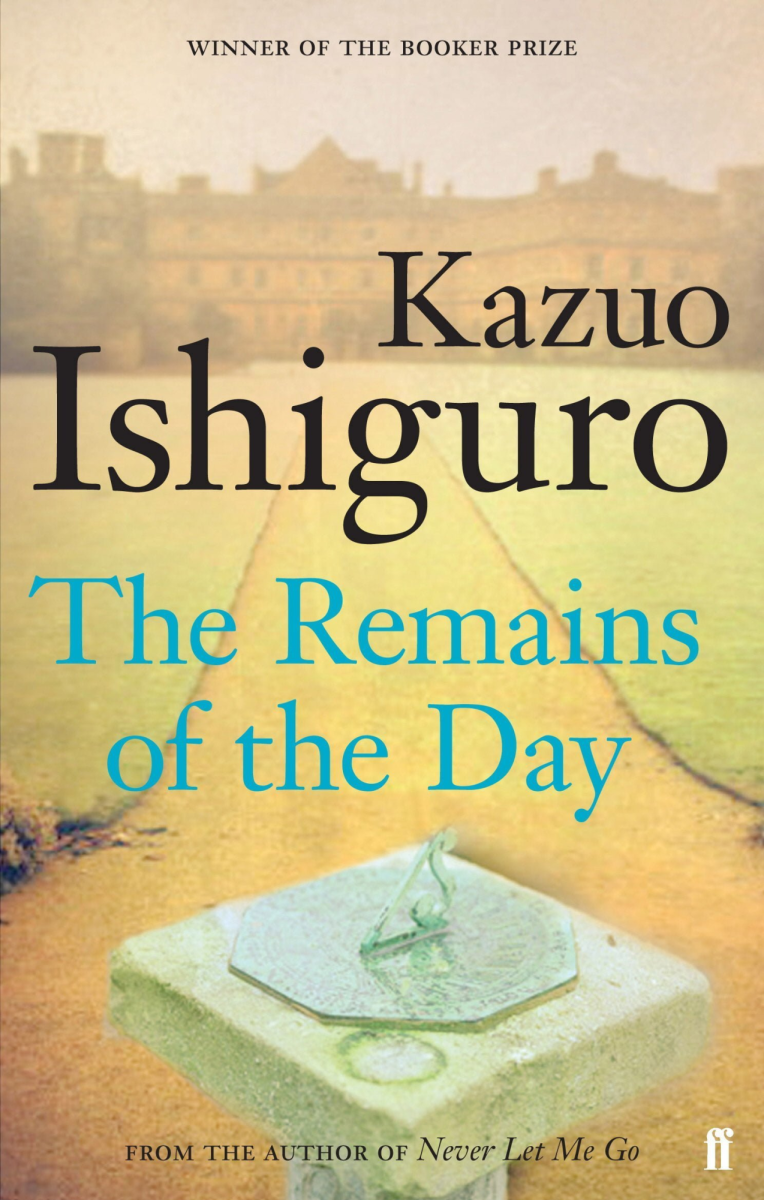When I read a truly great novel, I find that I can connect with it on multiple levels. Sometimes, it is intellectual; there are books like The Left Hand of Darkness, which continually make me re-imagine the way I see myself and the world around me. Sometimes, it is with the characters; I am reminded of Catherine and Heathcliff, the heroes of Wuthering Heights, who are so vibrantly alive that it seems they could leap off the page. Still other times I connect with novels on a level of raw emotion. One such book, which I would describe as almost achingly beautiful, is Kazuo Ishiguro’s The Remains of the Day.
Published in 1989, Remains is Ishiguro’s third novel. It won the Booker Award, the highest award for fiction in the UK, and was recognized as Ishiguro’s most celebrated work when he won the Nobel Prize in Literature.
The novel follows Stevens, an aging butler on a journey through his own past. It is structured as a travelog of his first vacation in thirty years, weaving together Stevens’ travels through the English countryside, philosophical musings on his career, and flashbacks of his younger days to form a powerfully moving picture of a human life.
Stevens himself is a man singularly devoted to his work, spending many of his waking hours trying to improve his service to his employer. This inclination for work forms the basis of Stevens’ conflict in the book: throughout the novel, he wrestles with the question of what it means to be a ‘great butler.’
At first he settles on the idea of ‘dignity.’ Every great butler, he observes, possesses an unassailable professionalism, and can control their emotions under the most trying of circumstances. He sets out to emulate this ideal—but at the cost of his own selfhood. His resolution prevents him from pursuing a budding romance, hampers his relationship with his father, and leaves nothing left in his life but his work.
Later, Stevens comes to the idea that in order to be a great butler, one’s services need to be for something. A truly great butler, then, must ensure that their services, however insubstantial, serve a higher purpose. To this end, those aspiring to greatness should pursue employers of great influence and “indisputable moral stature.”
Initially, Stevens describes his own employer, Lord Darlington, as such a fine English gentleman. However, over the course of the novel it is revealed that Lord Darlington is much more layered. He is a gentleman, but he is also a member of a fading political class. In an effort to hold on to influence, he organizes several international conferences, but to little effect. Eventually he falls under the sway of Nazi sympathizers, and becomes a pawn of the Nazis himself. After the war, destroyed by a libel lawsuit, he wastes away, with Stevens at his side.
The sense of melancholy this engenders is compounded by Stevens’ meeting with Miss Kenton, the woman whom he could have shared a life with if only he had been braver. He finds that she is happily married and awaiting her first grandchild. After reflecting on what could have been, they part amicably.
Near the end of the novel, as Stevens comes to terms with the fate of his employer, he begins to reflect on his own life. He laments that all those years in the service of Lord Darlington, the best years of his life, have been wasted. “I gave him the very best I had to give,” he says, “and now – well – I find I do not have a great deal more left to give.” The novel concludes with Stevens sitting on a pier, looking at the lights and resolving to enjoy the remains of the day.
For me, The Remains of the Day is a powerfully affecting novel. Like all great books, it showed me a world outside my own – the world of a person who has left youth behind, forced to confront the fact that their best years are behind them. I feel that I have my whole life ahead of me, so I found this perspective especially fascinating.
The novel also helped me understand many of the people around me. All my life I have been surrounded by middle-aged people—parents, teachers, family friends—but I had never known what they’ve been experiencing. When I was younger my mother would tell me of all the other lives she could have had, all the roads she could have gone down, in favor of the life she had now. It irked me, frankly; I couldn’t imagine that she would want any other life but this one. But after time passed, and after I read this book, I found myself more able to understand her motivations, and to empathize with her.
I also feel that Remains touches on several issues that are still relevant today. To use Ishiguro’s characterization, today’s world makes it all too easy to become a “butler”—someone who, like Stevens, offers up their little contribution to, and offloads their moral responsibility onto, a larger entity. That may be a corporation, a government, a political party, or any other group.
As a programmer, I see people all around me heading for jobs in an industry where advertising is king, user data is the currency and user rights are the last concerns of enterprising CEOs.
I once met someone who worked at Facebook researching artificial intelligence. I asked them if they were troubled by Facebook’s routine and egregious violations of privacy, as machine learning is often used to probe even further into data harvested from users. They told me, “It’s just research.”
I have a friend who is in love with aerospace engineering, and is in love with the miracle of flight, who is hesitant to enter industry because nearly all the jobs are at companies that manufacture weapons. Their contribution may be small, but the fact remains that it would be used to kill people.
There is no easy answer to these dilemmas. The easy choice is extremely tempting. But it is my hope that it is books like Remains, which are both emotionally moving and intellectually stimulating, that can inspire us to the moral courage that we need to face the world we live in.




































